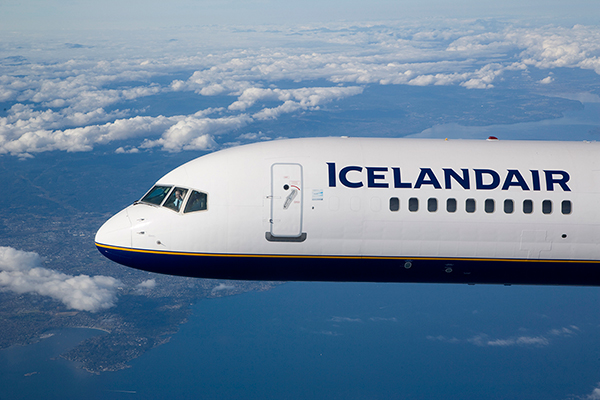Icelandair has signs a memorandum of understanding with local manufacturer IdunnH2 to take delivery of enough sustainable aviation fuel (SAF) to reduce carbon emissions by up to 10 per cent.
The agreement will see the airline take delivery of 45,000 tons of SAF from 2028 onwards to help power its international flights. The SAF will be produced at a site near Keflavík International airport where it will be blended with conventional jet fuel so it can be used in Icelandair’s current fleet of aircraft.
Like most airlines, Icelandair has set a target of reaching net-zero for its carbon emissions by 2050 through the delivery of new fuel-efficient Boeing 737 MAX aircraft and stepping up the use of SAF.
Bogi Nils Bogason, CEO of Icelandair, said the agreement with IdunnH2 showed the carrier wanted to “pull our weight” to support companies developing SAF in Iceland.
“We at Icelandair have set ambitious goals to reduce carbon emissions and have already invested significantly in fleet renewal which is currently the most effective measure to reduce emissions,” added Bogason.
“It is, however, going to be the utilisation of sustainable aviation fuels that will play an important role on this journey in international aviation over the next years. The challenge is that there is not enough production in the world today and therefore not enough supply. We believe there are great opportunities for Iceland to start such production.”
Most SAF currently being produced comes from bio-waste, such as used cooking oil or animal fat, but IdunnH2 plans to create synthetic e-fuel for Icelandair from “green hydrogen” and recycled CO2.
























